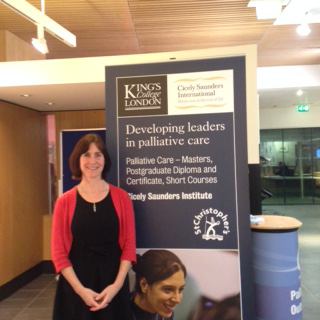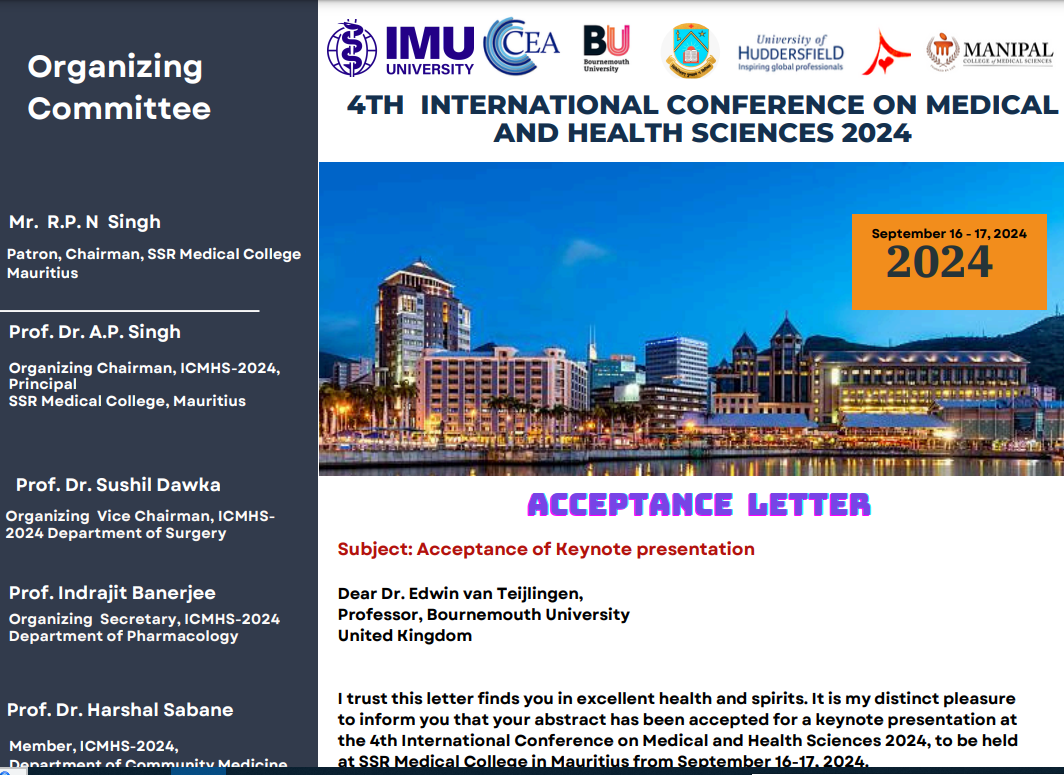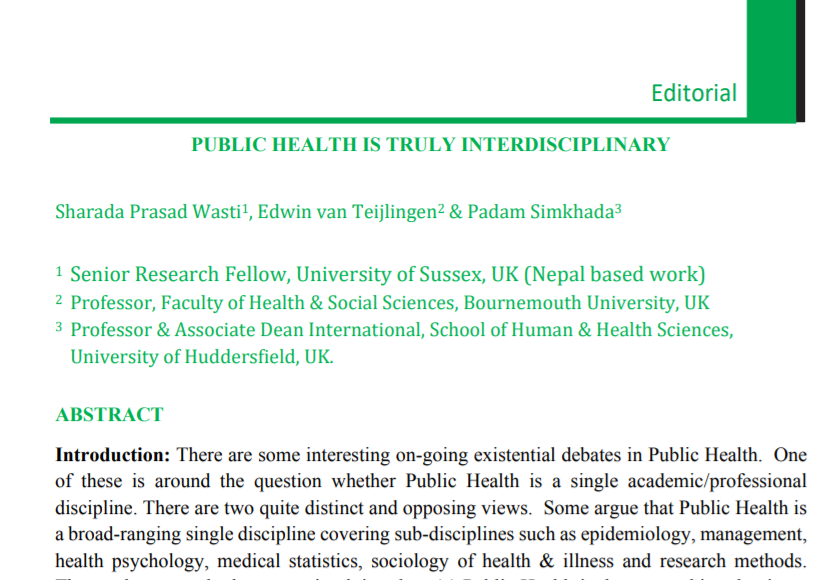 On 25th November, Dr Fiona Kelly attended the Cecily Saunders Institute at King’s College London as an invited guest speaker to present research on determining what aspects of the design of care environments might be important for people with dementia nearing the end of life. The key messages of her presentation were the importance of firstly assuming the ability of people with dementia to engage with the senses, whether through touch, sound, smell, sight or taste and then to provide the means of engaging with whatever sense was appropriate or possible. The presentation was followed by a panel discussion with the audience in which the practical application of design principles within hospital settings was debated. The consensus was that even small changes can make a big difference. Following the presentation and discussion, the panel made a commitment to include consideration of dementia design principles in staff education within the Institute.
On 25th November, Dr Fiona Kelly attended the Cecily Saunders Institute at King’s College London as an invited guest speaker to present research on determining what aspects of the design of care environments might be important for people with dementia nearing the end of life. The key messages of her presentation were the importance of firstly assuming the ability of people with dementia to engage with the senses, whether through touch, sound, smell, sight or taste and then to provide the means of engaging with whatever sense was appropriate or possible. The presentation was followed by a panel discussion with the audience in which the practical application of design principles within hospital settings was debated. The consensus was that even small changes can make a big difference. Following the presentation and discussion, the panel made a commitment to include consideration of dementia design principles in staff education within the Institute.
Fleming, R., Kelly, F. and Stillfried, G. (2015) ‘I want to feel at home’: establishing what aspects of environmental design are important to people with dementia nearing the end of life, BMC Palliative Care. http://www.biomedcentral.com/1472-684X/14/26














 Expand Your Impact: Collaboration and Networking Workshops for Researchers
Expand Your Impact: Collaboration and Networking Workshops for Researchers Visiting Prof. Sujan Marahatta presenting at BU
Visiting Prof. Sujan Marahatta presenting at BU 3C Event: Research Culture, Community & Can you Guess Who? Thursday 26 March 1-2pm
3C Event: Research Culture, Community & Can you Guess Who? Thursday 26 March 1-2pm UKCGE Recognised Research Supervision Programme: Deadline Approaching
UKCGE Recognised Research Supervision Programme: Deadline Approaching ECR Funding Open Call: Research Culture & Community Grant – Apply now
ECR Funding Open Call: Research Culture & Community Grant – Apply now ECR Funding Open Call: Research Culture & Community Grant – Application Deadline Friday 12 December
ECR Funding Open Call: Research Culture & Community Grant – Application Deadline Friday 12 December MSCA Postdoctoral Fellowships 2025 Call
MSCA Postdoctoral Fellowships 2025 Call ERC Advanced Grant 2025 Webinar
ERC Advanced Grant 2025 Webinar Update on UKRO services
Update on UKRO services European research project exploring use of ‘virtual twins’ to better manage metabolic associated fatty liver disease
European research project exploring use of ‘virtual twins’ to better manage metabolic associated fatty liver disease